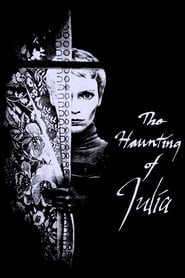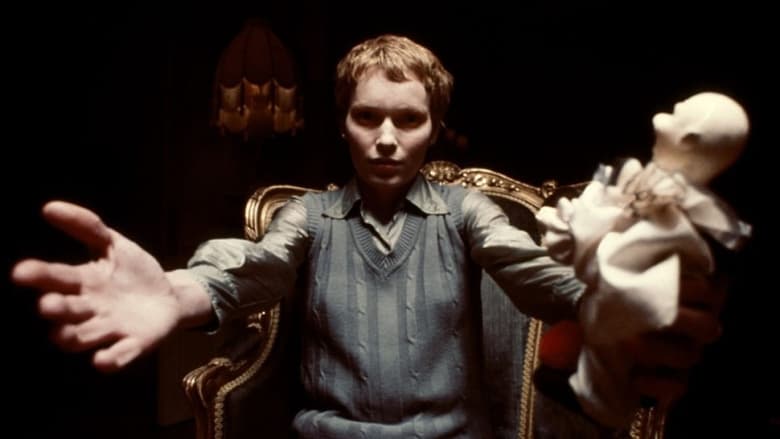“Full Circle 1978” follows a woman’s journey to reconnect with her past.
After losing her memory due to a traumatic event, she sets out on a quest to uncover the truth, like a detective on a case.
As she delves deeper into her past, she begins to piece together the puzzle of her life, like putting together a complicated jigsaw.
But as the memories flood back, she must confront the painful truths of her past head-on, like facing an opponent in a fierce battle.
Ultimately, she finds closure and learns to embrace her present by fully understanding her past, like finding inner peace in a calm sea after navigating through rough waters.

CLICK HERE⤓⤓⤓☑️_Watch Full Circle 1978 English Subtitles_
Review
Full Circle: Maya Angelou’s Timeless Classic
Maya Angelou, a woman of many talents, has left an indelible mark on the world. Her work as a poet, memoirist, and civil rights activist is well-documented. But she also had a brief stint in Hollywood as a screenwriter and director. In 1977, Angelou directed her first feature film, Full Circle.
The movie tells the story of La Rue (played by singer and actress Carmen McRae), a jazz singer who returns to her hometown to mourn the death of her mother. While there, she reconnects with old friends and grapples with her painful past. The film deals with themes of grief, redemption, and forgiveness.
Full Circle was not initially well-received by critics or audiences. It was panned for its slow pace and heavy-handed message. But over time, it has gained a cult following among fans of Angelou’s work.
The film has a star-studded cast that includes McRae as well as actors Paul Winfield and Julian Mayfield. Winfield plays Carl, La Rue’s childhood friend who still harbors feelings for her. Mayfield plays Reverend Turner, a preacher who tries to help La Rue come to terms with her past.
Angelou wrote the screenplay for Full Circle herself and drew on her own experiences growing up in the racially-segregated South. She said in interviews that she wanted to write a story that reflected the lives of Black women like herself.
“Black women are not often given starring roles in films,” she said in an interview with Ebony magazine in 1977. “And when they are given roles, they’re often caricatures or stereotypes.”
Angelou’s commitment to telling authentic stories about Black women is evident throughout the film. La Rue is not a one-dimensional character; she is flawed and complex, struggling with addiction and trauma from her childhood.
The film’s score was composed by Dexter Wansel, a Philadelphia-based musician and producer. The soundtrack is a mix of jazz and soul music, with McRae singing several songs that showcase her incredible vocal range.
One standout scene in the film features La Rue singing “It All Comes Back to Me Now” at a local club. The camera cuts between shots of her singing and flashbacks to her childhood, where she witnessed her mother being beaten by her father. It’s a haunting and powerful moment that showcases Angelou’s skill as a filmmaker.
Full Circle may not have been a commercial success when it was initially released, but its impact has endured. It remains an important part of Maya Angelou’s legacy and a testament to her commitment to telling authentic stories about Black women.
Angelou once said, “I’ve learned that people will forget what you said, people will forget what you did, but people will never forget how you made them feel.” Full Circle is proof that the feelings we evoke through storytelling can last a lifetime.
In conclusion, Full Circle is an engaging and creative movie directed by the late Maya Angelou. Despite receiving criticism from critics and audiences upon release in 1977 for its slow pace and heavy-handed message, it has gained cult status among fans of Angelou’s work over time. With an exceptional cast which includes Carmen McRae as the lead character La Rue along with Paul Winfield and Julian Mayfield in supporting roles, Full Circle tells the story of a jazz singer who returns home to mourn the death of her mother. The themes explored include grief, redemption and forgiveness. The authenticity in storytelling is evident throughout the film with La Rue being complex and flawed like any human being reflecting on Black women today. Dexter Wansel’s music score adds another layer to the film which is mix of jazz,soul music along McRae singing several songs that showcase her incredible vocal range. The movie also features an exceptional scene of La Rue singing “It All Comes Back to Me Now” at a local club giving viewers goosebumps. Full Circle is a testament to Maya Angelou’s commitment to telling authentic stories about Black women and will be remembered for a lifetime.
Technical Data

- Runtime : 98
- Release : 1978-02-09
- Genre : Drama, Horror, Mystery
- Cast : Mia Farrow as Julia Lofting, Keir Dullea as Magnus Lofting, Tom Conti as Mark Berkeley, Jill Bennett as Lily Lofting, Robin Gammell as David Swift
- Crew : Brian Morris as Production Design, Shuna Harwood as Costume Design, Richard Loncraine as Director, Colin Towns as Original Music Composer, Ron Wisman as Editor
- Popularity 6.464
- Budget : $840,000
- Revenue : 0
- Company : Canadian Film Development Corporation (CFDC), Classic, Famous Players
- Summary : After the death of her daughter, wealthy housewife Julia Lofting abruptly leaves her husband and moves into an old Victorian home in London to re-start her life. All seems well until she is haunted by the sadness of losing her own child and the ghosts of other children.
- Tagline : She had no one to play with for thirty years.
